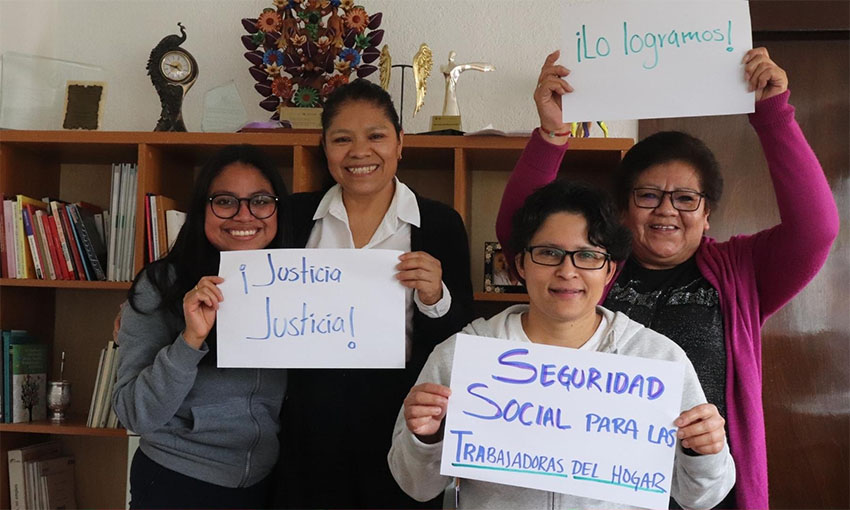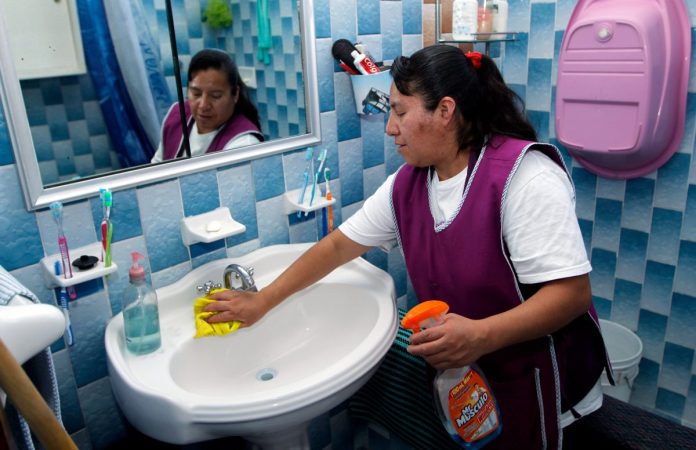Both houses of Congress have now approved legislation that seeks to guarantee that Mexico’s more than 2 million domestic workers have access to social security benefits.
In March, senators voted unanimously in favor of reforming the Social Security Law (LSS) to make the enrollment of domestic workers in a Mexican Social Security Institute (IMSS) scheme obligatory, and lawmakers in the lower house of Congress followed suit on Thursday.
The reform, supported by 486 deputies and opposed by none, will become law once it has been promulgated by President López Obrador. It adds a new chapter to the LSS that stipulates that employers of workers such as housekeepers and nannies must register them with IMSS. Employers of full-time and part-time workers will be required to comply with the new law, meaning that they will have to make a monetary contribution to IMSS and retain and forward an employee’s contribution to the same institute.
The amount the employer and employee are required to be paid can be calculated using an IMSS online tool (Spanish only) and registration can also be completed on the IMSS website. Information about how to register an employee is available in English in this Infobae article.
The law will provide Mexico’s almost 2.3 million domestic workers — over 90% of whom are women — with a range of benefits, including health care and free medicines. Their family members will also be able consult doctors free of charge at IMSS health care facilities.
Among the other benefits that will be available to domestic workers are sick leave, maternity leave, paid vacations, worker’s compensation, childcare, life insurance, severance pay and a pension.
The approval of the legislation comes almost four years after the Supreme Court ruled that domestic workers must must have access to social security benefits like any other worker and over three years after a labor law benefiting such workers was approved. IMSS established a pilot program in early 2019 and almost 12,000 workers were enrolled in its first eight months of operation.
But the United Nations Entity for Gender Equality and the Empowerment of Women (UN Women) reported in early 2022 that the vast majority of domestic workers still didn’t have access to social security benefits.

Belén Sanz Luque, Mexico representative of UN Women, said in February that 97% of domestic workers were employed informally and weren’t receiving benefits such as health care and paid vacations. That situation should now improve, although the policing of employers could prove to be a challenge.
Marcelina Bautista, founder and director of the National Center for Professional Training and Leadership of Domestic Workers (CACEH), described the Chamber of Deputies’ approval of the legislation as “the last step that had to be taken” to ensure that maids, nannies, gardeners, drivers and others can access social security benefits. As a result of the pilot program, employers of domestic workers “already know … how to comply with this obligation,” she told the news website MVS Noticias.
Deputy Angélica Cisneros Luján, president of the lower house of Congress’ social security committee, said that the new law “has historical significance for Mexico.”
It establishes “the regulatory bases for the incorporation [in a social security scheme] of a sector of working people who have historically been discriminated against and made invisible,” the Morena party lawmaker said.
With reports from El Economista and MVS Noticias
